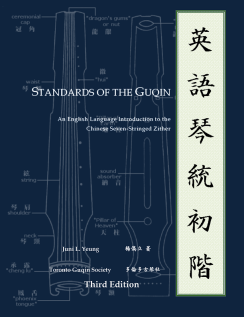Song Qingsheng (宋慶勝), or more popularly known by his courtesy address Yuren (豫人), is a prominent speaker of Hanist thought in the Huaxia Restoration Movement. He is self-titled as “Researcher for the purpose of Saving Huaxia culture (华夏文明研救者)”, and a transmitter of the Standards Vessel sect of the Yi School (School of Changes) thought (易家制器派傳人). After his retirement from his post as a CCP local official, he has been actively studying, writing, and lecturing about the possibilities and necessity of a revival of Han Chinese tradition as a cultural backbone to restoring prominence and survival of the Han Chinese race. For the past two years, Song has travelled across China and Malaysia to give lectures in his discourse, as well as in ritual and etiquette of the Han Chinese tradition. In the details of this post is an example of his lectures, usually an hour long, on recategorizing discourse found in China into three major systems divided not by political spectrum, but as cultural groups. He notes as his conclusion that for the past two centuries, China has been continually experimenting with foreign systems of thought with varying degrees of success, but to ensure survival of the race, one must rely on indigenous virtues and discourse to ensure existance of the Chinese legacy in the future.
In this translation, I will attempt to maintain the grammatical structure of the original Chinese language (including the many redundancies found in public speech patterns), so that the reader can follow through with the original lecture without too much difficulty.
Mr. SONG Yuren’s Han Lectures at the Elm Altar Series
Cultural Discourse of Han, Tartar, and Western Systems (Lecture 1, morning of Saturday, October 24)
[Former] video link:http://v.blog.sohu.com/u/vw/3708516
[New] Video download: http://v.youku.com/v_show/id_XMTM3NzYxODUy.html
Blog:http://songyuren.blog.sohu.com
Venue:Every Saturday and Sunday, under the elm tree in the Zhengzhou City God Temple
Welcome everyone to the Han School Forum! Because I had to go to Beijing last week, I wasn’t here. This week we’ll continue: Today our topic of discussion is Han, Tartar, West – three systems of culture. Because this is a cultural arts forum, not a martial arts forum, that’s why someone cam here asking, why don’t I ever see you practicing martial arts? That’s because we’re all cultural people, and there are plenty of other places to practice martial arts, plenty of wushu schools around. We’re here to play around with culture, so we’ll talk culture. When some people talk about culture nowadays, there’s a huge area of misconception, especially when it comes to the culture in our Chinese territory. This misconception is too huge, so today we’ll only take on this topic with a basic investigation.







Recent Comments